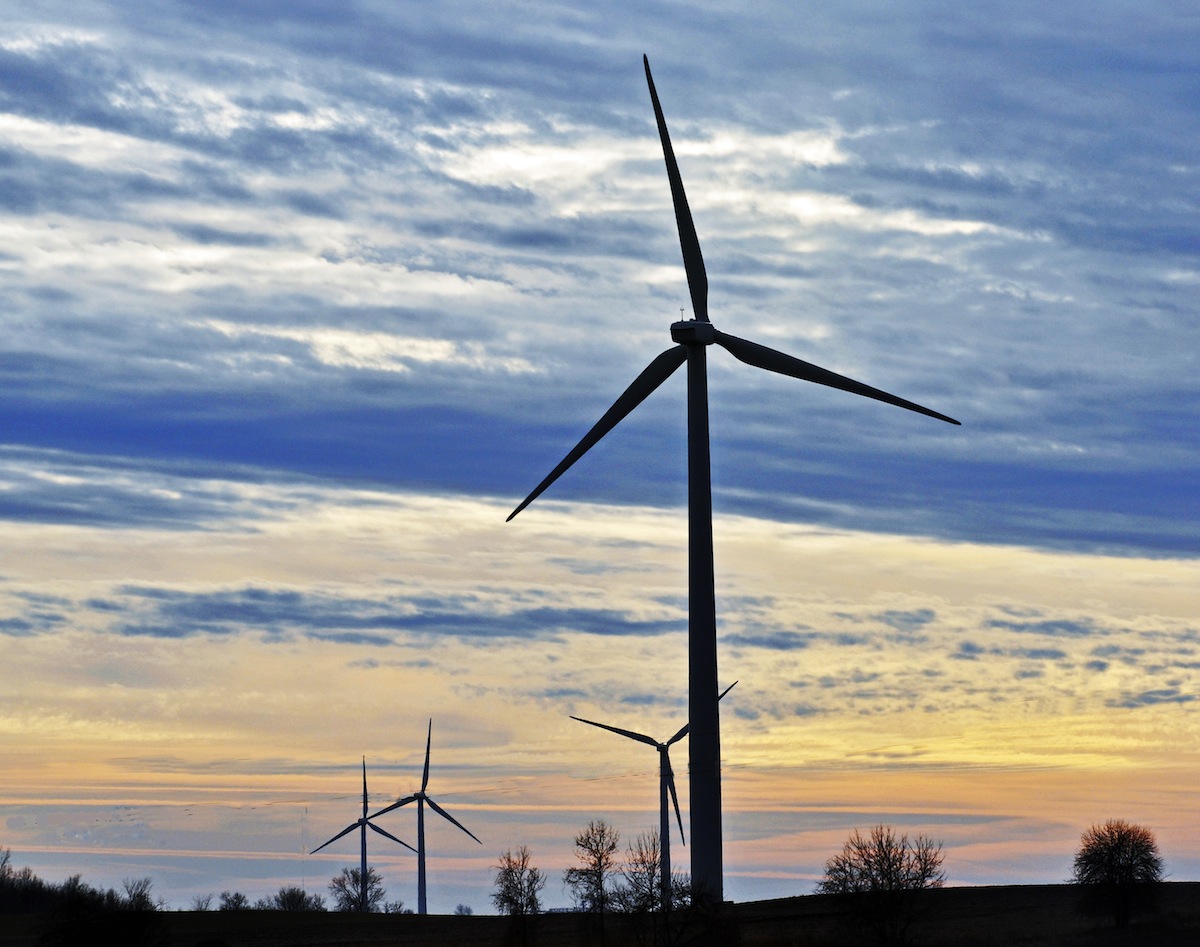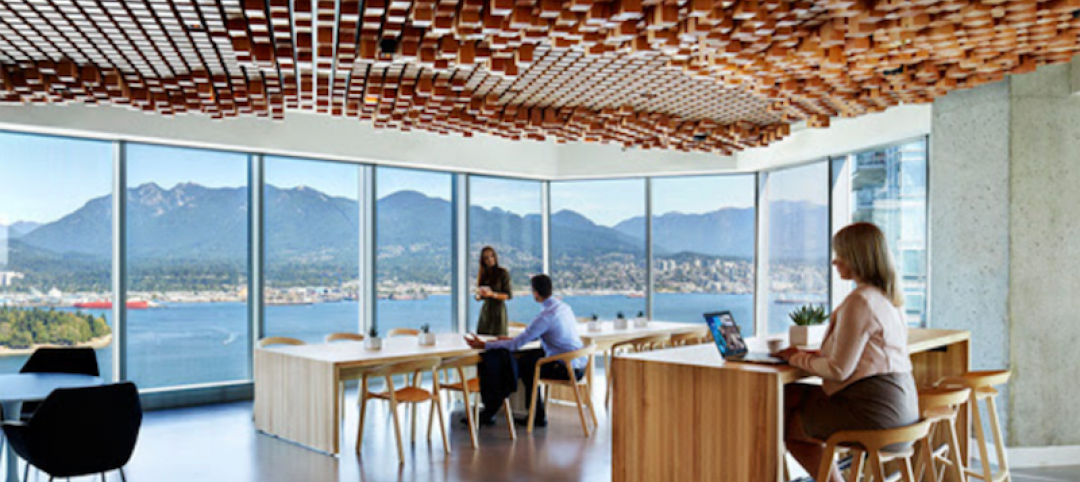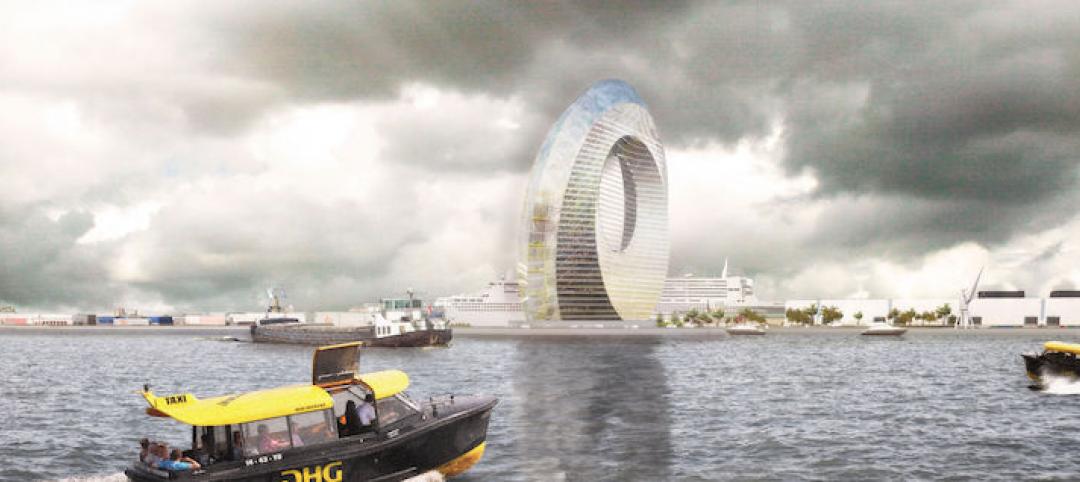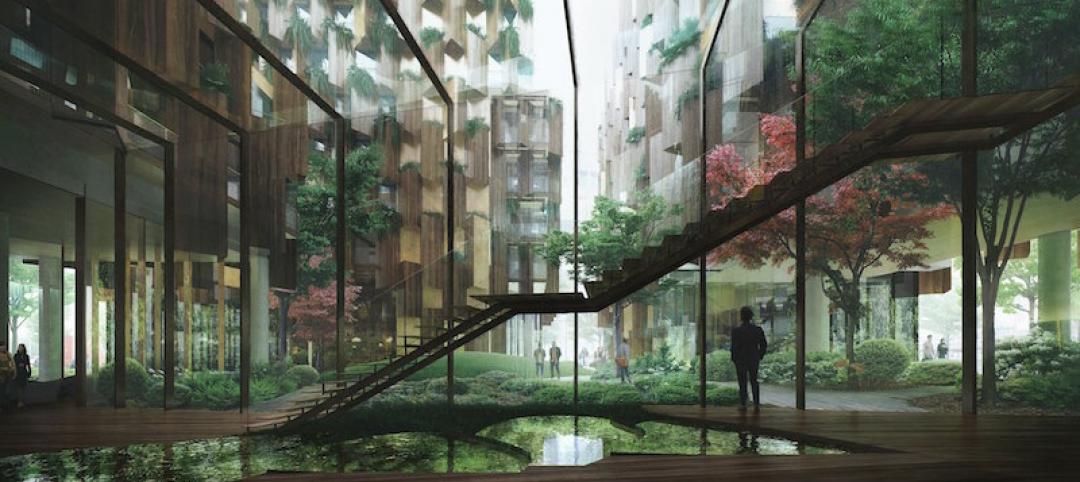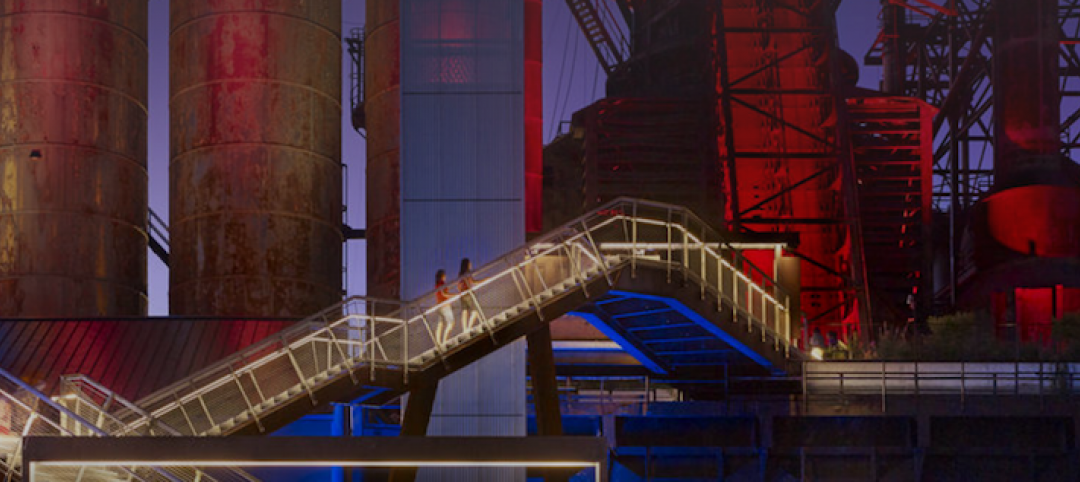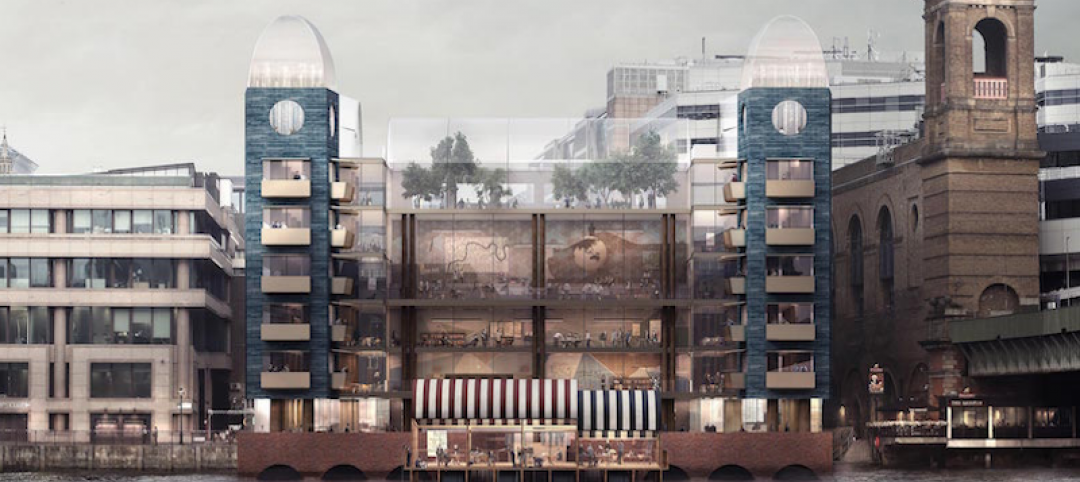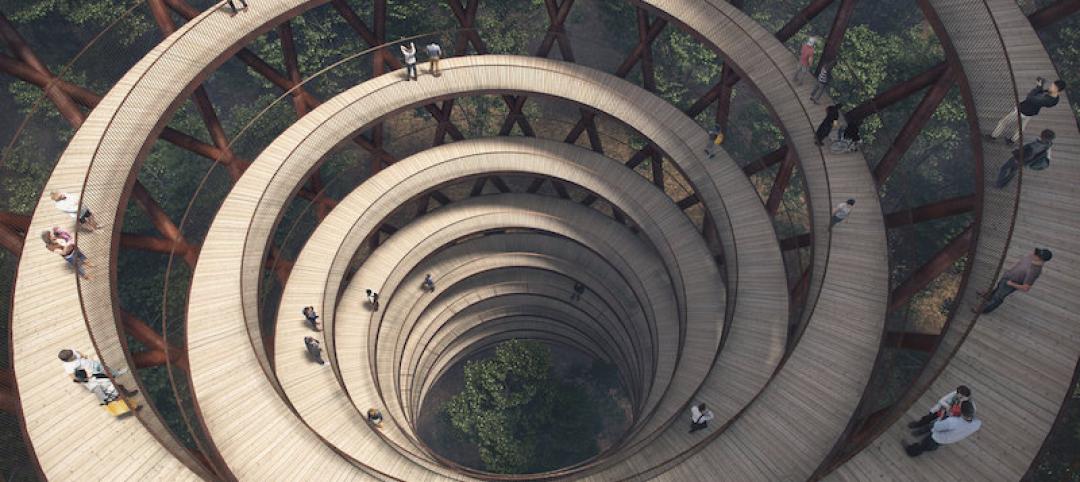After a 20% falloff in 2013, the global wind power industry made a strong comeback in 2014, with a record 51.2 gigawatts (GW) installed, representing a 42% increase over the previous year, according to the BTM Consult arm of Navigant Research in its latest World Wind Energy Market Update 2015.
China alone installed a record 23.2 GW of new wind power last year. All told, the global five-year average growth rate was 7.8%, and cumulative installed capacity rose to 373 GW by the end of last year
However, Navigant projects a curtailment in the growth of annual new installations through 2019. Over that forecast period, installations are expected to increase by only 0.3% per year, and that includes an 8.9% growth in 2015. A total of 245,547 megawatts of wind power will be added over the forecast period, increasing cumulative capacity by 13.2% per year.
China will continue to lead the world in installation activity for the foreseeable future. But Navigant doesn’t expect that country to add more than 17 GWs in any given year.
Navigant foresees a “substantial” drop in installations in Germany due to changes in incentive structures after 5.1 GW of wind power were installed last year, which was higher than anticipated.
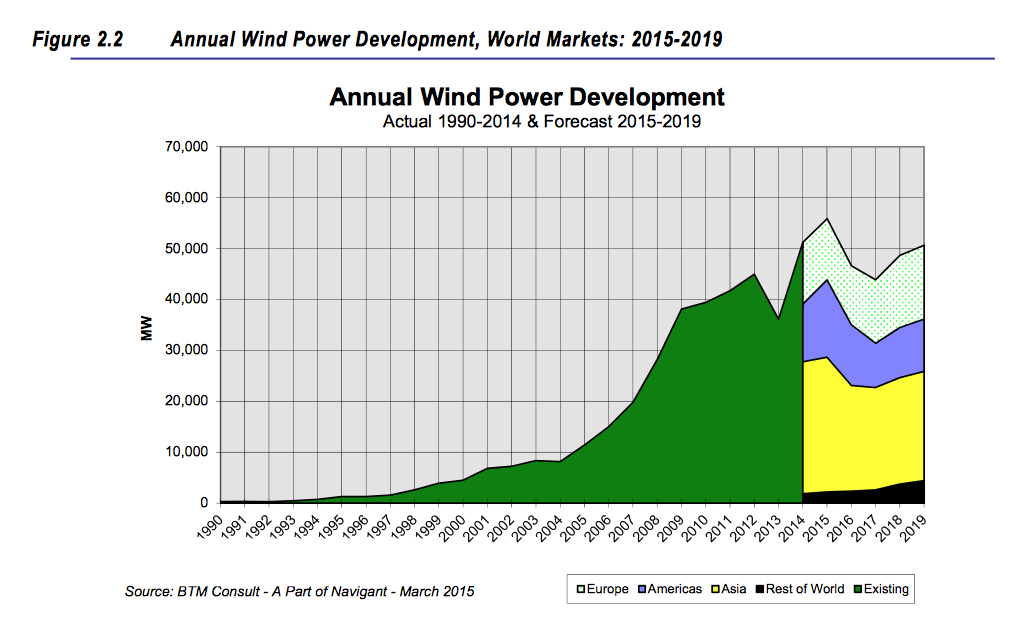 Chart from Navigant Research's wind power outlook
Chart from Navigant Research's wind power outlook
The U.S. wind power market has been recovering, thanks to the 2013 extension of the Production Tax Credit/Investment Tax Credit, as well as new safe-harbor guidance from the Internal Revenue Service about tax-credit eligibility. Navigant projects 14.8 GW will be installed in the U.S. in the years 2015 and 2016 combined.
In its 227-page report, Navigant notes that the average size of wind turbines increased only slightly in 2014, to 1,958 kilowatts (kW). The global market for direct-drive turbines grew 30% to 13,740 megawatts (MW), and represented 27% of all installations. In contrast, offshore wind grid connection and weather-related delays halved new offshore installations to 852 MWs in 2014.
Navigant notes that OEM sources are focusing more on product diversification, and are designed machines for maximum energy production in low wind speed areas, for operations in high altitudes or in cold climates, or for areas with blade-tip height restrictions. The evolution of larger rotor machines is leading to new blade designs, manufacturing processes, sourcing strategies, and supplier partnerships.
Interestingly, Navigant is seeing the hegemony of bigger players loosening a bit. Last year, the top 15 operator-owners controlled 29.3% of the market, or two percentage points lower than in 2013. “This exemplifies a trend of commercial acceptance in the utility marketplace. Demand for wind plants continues to move beyond the traditional owners that are historically comfortable with wind to new owners that are now convinced of the value wind plants bring to their portfolios,” Navigant reports.
Related Stories
Sponsored | Coatings | Jul 17, 2017
Innovation with a green focus
As building codes become more stringent and green rating systems grow in popularity, Valspar has developed products that meet ENERGY STAR and LEED rating system criteria.
Sustainability | Jul 10, 2017
British Columbia receives its first WELL certified workplace courtesy of Perkins + Will
Over 100 wellness features are incorporated into CBRE’s Vancouver office.
Sustainability | Jun 29, 2017
The Dutch ‘Windwheel’ wants to create a new sustainable landmark for Rotterdam
The sustainable structure will be a mixed-use development with a hotel, apartments, and office space.
Hotel Facilities | Jun 29, 2017
Luxury, plant-covered hotel unveiled for site near the River Seine
Kengo Kuma is designing the hotel, which will feature a large garden and a plant-covered façade.
Sustainability | Jun 28, 2017
Mohawk College will have one of the region’s first net-zero energy institutional buildings
The project’s net-zero goals led to the development of a new curtain wall system.
Building Team | Jun 27, 2017
Bruner Foundation announces 2017 Rudy Bruner Award for Urban Excellence gold and silver medalists
The SteelStacks Arts and Cultural Campus in Bethlehem, Pa., receives the gold medal and $50,000.
Green | Jun 23, 2017
Want a healthy building? Follow this primer on two new wellness standards
Since its development in the 1990s, the LEED rating system has been applied to over 19.1 billion total commercial square feet.
Codes and Standards | Jun 21, 2017
World Green Building Council: All buildings must be net zero by 2050 to avert 2°C rise
Building efficiency essential to tempering global climate change.
Green | Jun 16, 2017
Could this become London’s greenest building?
Curl la Tourelle Head Architecture wants to create a school powered by the River Thames.
Green | Jun 15, 2017
45-meter spiraling tower lets you walk above the trees
A 600-meter treetop path culminates with a 45-meter-tall spiraling observation deck.


